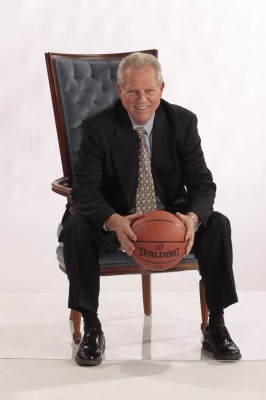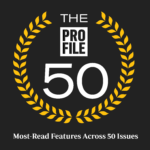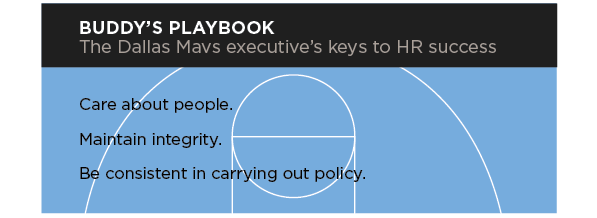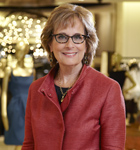It was a cold, rainy February night in Dallasas taillights lit the way into Reunion Arena. Buddy Pittman and his daughter, Robin, were among the line of cars waiting to take in a Dallas Mavericks game. Their tickets were a gift—Buddy had never purchased Mavs tickets before—and the occasion a treat, but the parking attendants didn’t know the context of their excursion.
They were rerouted to an isolated lot, half a mile from the arena. With no other choice, the two walked with heads down against the weather, up and down a set of stairs, across an overpass, and finally into the game, missing the entire first quarter. The next day Buddy had to take Robin to the doctor because she was sick from the hike.
It would be seven years before Pittman did business with the Mavericks again, this time as the senior vice president of HR. Considering the dreary first impression the team made on him, Pittman’s return to the Mavericks is “kind of a funny story.” Pittman played basketball in high school and college but never considered working in the NBA.
After working more than 30 years for one of the largest printing companies in America, the sports industry was the furthest thing from his mind, but no more than six weeks into his early retirement, at age 56, Pittman was aching to get back to work.

A blind ad caught his eye in the newspaper: “Wanted: Director of Human Resources, for fast paced, dynamic environment.” Pittman sent off his résumé with hardly a thought. “I can’t explain why I did that, because I know that’s not the best way,” he reflects on the gut decision.
He got a call from an unfamiliar number, and the voice on the other end told him news he never thought he’d hear: the president of the Dallas Mavericks wanted to interview him. All Pittman could think was, “How did he even get my name?”
When Pittman entered the University of North Texas in 1962, he wasn’t a wide-eyed, undecided freshman. He knew what interested him; he just needed to nail down his career. Pittman considered becoming a psychiatrist, but quickly ruled it out because of the extensive schooling. He wanted to start making a difference now, not when he turned 30.
So he pursued business as an undergraduate with a minor in psychology. Still, there was some red tape to cut through before he would reach his dream job of working in human resources. He took his first job as a systems analyst at Moore Business Systems in 1966, now known as RR Donnelley. Fifteen months later, and well into his master’s program, Pittman was promoted to southern division systems and procedures manager. But he still wanted more.
With his dream and seven years of paying his dues to give him courage, Pittman approached the southern division HR director and offered this bold proposition: “Mentor me, and in three years I could fill the void your mandatory retirement will leave.” His path didn’t pan out exactly as planned, but, by 1978, Pittman became the manager of wage and salary administration for the southern division of the company.
Read more of Profile’s Top 50 articles.
In 1980, he rose to director of human resources of the new computer division, Moore Business Systems. He divided his time for the next 17 years between three distinct divisions of Moore—in Dallas; Lewisville, Texas; and Grapevine, Texas. By the end of 1997, however, signs were pointing him toward early retirement.
“My position was being moved to Chicago,” Pittman recalls. “I didn’t want to go, because my family was here [in Texas].” Despite landing the career in HR, Pittman says opportunities to help people were becoming fewer in his final days at Moore.
“Moore was a 100-and-some-year-old organization,” he says. “For years, it never had a layoff. At the end, I had to do a lot of negative things: close plants, sales offices, regional facilities; layoff people I worked with for years.” Pittman knew it was time to walk away, so he accepted his severance package and boxed up his offices.
Pittman had never been one to wait for things to happen to him, so when retirement proved too relaxing, he took action. That’s where the blind ad came in. After the initial shock of being contacted by the Mavericks, Pittman’s initiative took over. He scheduled the earliest available interview, wanting to be the first candidate to impress president Terdema Ussery, the man who would come to call Pittman “one of the persons I trust most in my office.”
The chemistry of that first meeting and Pittman’s direct way of speaking—he told Ussery in his second interview that the HR department needed equal status for the new position to be successful—set him apart in a pool of 150 candidates. “Based on my experience and maturity,” Pittman explains, “[Ussery] saw qualities that could benefit the organization. People trust me. They know I’m sincere.”
Coming to the Mavericks allowed Pittman to get back to his passion. The team’s success, as well as their recent championship on the court in 2011, has inspired a winning attitude in the front office. But spirit was not always part of the corporate wardrobe, nor its demeanor.
“When I first came to work for the Mavs, back when we were kind of a laughing stock, a lot of that carried over to the front office,” Pittman recalls. “There was a lot of negative publicity in the papers. It [was] very defeating.” It took a change of hands to Mark Cuban, the current owner, and a winning record to prove to fans that the Mavericks were the real deal, but at 2909 Taylor Street, the transformation began with hiring and innovation.
Just as the Mavs bench is refreshed with young talent, Pittman says he and Ussery’s scouting has stacked the corporate lineup. “You should be trying to hire people who are more competent and intelligent than you,” Pittman explains.
Now the office “flies the colors,” as Pittman puts it. Other NBA offices are askingthe Mavs for advice on how to improve. There’s a familial bond among employees and an I’ve-got-your-back attitude that permeates the workplace. “We look after each other,” Pittman says. “If someone’s sick, we have people who jump in and help out.”
The Mavs’ absence policy is pretty unique as well. “Whether it’s a day or two for the flu or three months recovering from knee surgery, as long as an employee is in good standing, we pay them regardless of how long they might be out,” Pittman says.
He is particularly proud of the office’s new, self-funded health-benefits plan, brokered through the Gus Bates Company, which allows his department more flexibility in meeting employee coverage needs.
Pittman reflects that it was an nontraditional road to his job as the senior VP of HR. “At one point, I thought it’d be fun to be a basketball coach, but I didn’t think it’d be a great living,” he says. “I had never really thought about working for a pro sports team.”
But after more than 13 years with the boys in white and blue, Pittman puts it in perspective: “This is a fun business. It’s an exciting business. It has been such a blessing for me, after a number of years having to do things I couldn’t sleep at night over, I got to come [here] and do positive things.”



